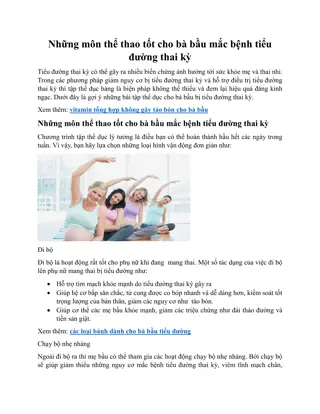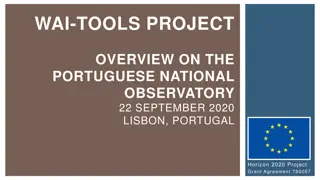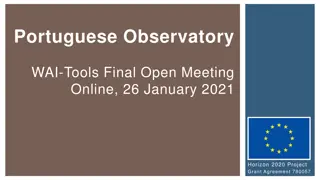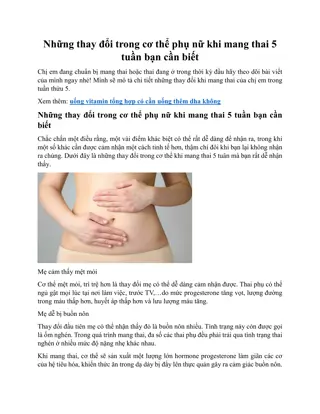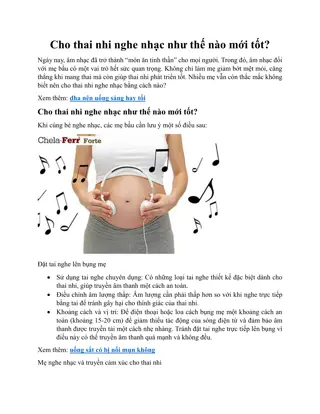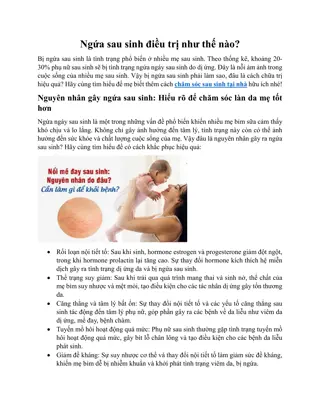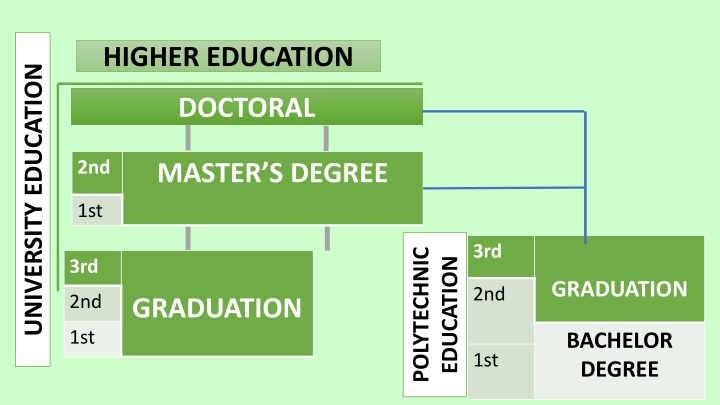
Educational System in Portugal: From Nursery School to Higher Education
Discover the comprehensive educational system in Portugal, starting from nursery school for children under three, progressing through various levels including basic education, secondary education, and ultimately higher education with doctoral and master's degrees. Explore the diverse educational opportunities available, from vocational courses to artistic education, catering to students of all ages.
Download Presentation

Please find below an Image/Link to download the presentation.
The content on the website is provided AS IS for your information and personal use only. It may not be sold, licensed, or shared on other websites without obtaining consent from the author. If you encounter any issues during the download, it is possible that the publisher has removed the file from their server.
You are allowed to download the files provided on this website for personal or commercial use, subject to the condition that they are used lawfully. All files are the property of their respective owners.
The content on the website is provided AS IS for your information and personal use only. It may not be sold, licensed, or shared on other websites without obtaining consent from the author.
E N D
Presentation Transcript
HIGHER EDUCATION UNIVERSITY EDUCATION DOCTORAL 2nd MASTER S DEGREE 1st POLYTECHNIC EDUCATION 3rd 3rd GRADUATION 2nd 2nd GRADUATION 1st BACHELOR DEGREE 1st
SECONDARY EDUCATION 12Th 11th 10th GENERAL COURSES TECHNOLOGICAL COURSES VOCATIONAL COURSES ARTISTIC EDUCATION SCIENTIFIC and HUMANISTIC RECURRENT APRENTICESHIP EDUCATION AND TRAINIG COURSES FOR YOUTHS AND ADULTS From 18 years old of age
SECONDARY EDUCATION From the age of 18 From the age of 15 GENERAL COURSES TECHNOLOGICAL COURSES RECURRENT SCONDARY EUCATION SCIENTIFIC and HUMANISTIC VOCATIONAL COURSES ARTISTIC EDUCATION APRENTICESHIP COURSES EDUCATION AND TRAINIG FOR YOUTHS AND ADULTS From 18 years old of age
BASIC EDUCATION 9th 3rd cycle 8th COMPULSORY EDUCATION Classes are taught by a single teacher per subject or multidisciplinary educational field. ARTISTIC APRENTICESHIP RECURRENT 7th 6th 2nd cycle 5th 4th 1st cycle 3rd 2nd Is taught by one teacher who may be assisted by others in specialised areas. 1st
NURSERY SCHOOL EDUCATION Socio-educational provision geared towards children under three is made up of: Creches socio-educational provision that care for children up to the age of three while parents or the person who has custody of them is unable to look after them.
NURSERY SCHOOL EDUCATION State nursery schools are part of school clusters together with schools providing basic education (1st, 2nd and 3rd cycles) and upper secondary education. School clusters aim to optimise human and material resources and the equipment existing in schools of basic and upper secondary education, allowing pre-school pupils to use, for example, a school library, gym, playing fields, sciences lab and school canteen. In these school clusters a common education project is designed for all education levels.
PRE-SCHOOL EDUCATION Pre-school education is the first stage of Portuguese basic education system in lifelong learning process, and as a complement of parent s role in their children s education. It is for children between the ages of three and five and is optional. It is provided by kindergartens, which are run by a variety of state organisations, charitable institutions, private schools and cooperatives, unions and other organisations.
PRE-SCHOOL EDUCATION The main pedagogical objectives of pre-school education are: to promote children s personal and social development; to foster children s integration into diverse social groups; to contribute to equal opportunities; to stimulate children's overall development; to develop expression and communication; to enhance curiosity and critical thinking; to offer children well-being and safety; to identify maladjustments, disabilities or giftedness and to encourage families to participate in the educational process.
BASIC EDUCATION Basic school education is compulsory and free for everyone. Emphasis it is placed on the integrated development of studies and activities and the teaching of a foreign language may begin.
BASIC EDUCATION The second cycle covers interdisciplinary areas of basic education. . The third cycle is structured as a set of disciplines or groups of disciplines, incorporating various elements of vocational training.
BASIC EDUCATION AIMS: pupils development of interests, aptitudes and skills and grow as individuals, in accordance with values of social solidarity; .pupils acquirement and master basic knowledge, skills, attitudes and values, forming the basis for further general or vocational studies; pupils encouragement in the development of values, attitudes and practices that help to instil a sense of civic responsibility and willingness to participate in democracy.
BASIC EDUCATION AIMS: In general basic education can also include Portuguese as a foreign language (PLNM) for students whose mother tongue is not Portuguese and/or who have not had Portuguese as a school language and for which, according to their academic path and sociolinguistic profile, the school considers to be the most appropriate curricular provision.
BASIC EDUCATION AIMS: There are also benchmarked schools for bilingual education and teaching. This specialised educational provision offer access to the national curriculum with curriculum models that include Portuguese Sign Language as a first language and written Portuguese as a second language.
BASIC EDUCATION AIMS: Other school inclusion measures have been excluded, an Integrated Education and Training Programme can be adopted, which enables students to conclude compulsory schooling and promotes social inclusion. This is both a temporary and exceptional socio-educational and training measure for inclusion.
General guidelines to reinforce and consolidate schools and teachers pedagogical autonomy in orther to adopt differentiating measures that facilitate didactic and pedagogical solutions that improve student s learning conditions were applied from school year 2018/2019: - implementation of measures that guarantee inclusive education that responds to each student s potential, expectations and needs; - promoting innovation and diversification of teaching and learning methodologies; - timely identifying students integration and learning issues; - closely monitoring students with integration issues, a bad relationship with peers and teachers, and learning difficulties; - adjusting teachers timetables to the school needs that arise during the school year, whenever justified.
At different times during a students school life, and whenever students demonstrate learning difficulties in any subject, The measures envisaged include, among others, drafting plans that consider students characteristics, study support, teaching assistance in the classroom, temporary teacher swops in the 1stcycle, the implementation of tutorials or temporary formation of groups of students according to their needs and/or capabilities.
INTEGRATING IMMIGRANT CHILDREN INTO SCHOOLS IN EUROPE Neither the children of refugees and exiles nor the children of immigrants irregular residents can be refused a school place unless the school has no more room, in which case it is required to refer the pupils to another educational establishment in the area. Pupils from pre-school to the ninth year registered in the public education system whose mother tongue is not Portuguese (even if Portuguese is the official language of their country of origin) may benefit from support measures. These children attend Portuguese lessons along with others but may receive extra tuition in the language if necessary. . MEASURES OFFERING SCHOOL-BASED SUPPORT TO IMMIGRANT CHILDREN AND THEIR FAMILIES In 2003 No school may refuse to enrol a child, provided it is located in the area in which his or her parents reside and places are still available. If all places have been filled, schools normally try to redirect children to other schools in the same area. Children first enrol between the beginning of January and 15 September in the calendar year in which they become 6 years of age, and re-enrol regularly at the end of each school year. Schools will accept enrolment outside these dates on the basis of a written request from the person legally responsible for the child s education. Immigrant children who have already begun school in their country of origin should provide their host school with a document which testifies to their level of attainment (and which should be authenticated by the Integrating Immigrant Children into Schools in Europe 6/12 Portuguese or home country consular or embassy authorities
INTEGRATING IMMIGRANT CHILDREN INTO SCHOOLS IN EUROPE . MEASURES OFFERING SCHOOL-BASED SUPPORT TO IMMIGRANT CHILDREN AND THEIR FAMILIES In 2003 Immigrant children who have already begun school in their country of origin should provide their host school with a document which testifies to their level of attainment (and which should be authenticated by the Integrating Immigrant Children into Schools in Europe 6/12 Portuguese or home country consular or embassy authorities Children without this school record (or its translation where required) have to go to the Department of Basic Education (DEB) where they take a test to determine how much they have learnt. 2.2. Integration into School Learning Immigrant pupils are integrated directly into the regular education system. The Order in Council 219/97 of 20 August 1997 which defines the model of equivalences with respect to other education systems, facilitates the immediate integration of migrant pupils into the school system by allowing conditional enrolment so that students can attend school without delay. Candidates who enter the national educational system through the diploma-equivalence process must be allowed to benefit from a teaching support scheme suited to their situation and compatible with the possibilities of the educational establishment.
Teaching support should focus on eliminating difficulties encountered by the student, in particular in mastering the Portuguese language. This same Order (Article 16,3) states: For the implementation of the foregoing provisions, the educational establishment shall carry out a diagnostic assessment of the pupil and shall subsequently formulate an individual educational support plan . The teachers of kindergarten and the 1st cycle of primary education are required to promote the learning of spoken language by all children, with special attention to those belonging to social and linguistic minorities or underprivileged segments of society; and to encourage pupils of other mother tongues to learn Portuguese as a second language In the curriculum for primary education, several points may be noted: The integration of immigrant pupils into schools can be achieved in different educational and learning situations, with an emphasis on a differentiated teaching approach; Particular attention is paid to cooperative activities focusing on integration and the exchange of knowledge The schools must pursuant to their autonomous status and in accordance with their educational programme define, offer, and manage specific measures for the diversification of the curriculum : Schools must provide specific curricular activities for teaching Portuguese as a second language to pupils whose mother tongue is not Portuguese . Consequently, depending on the capacities of the establishment, Portuguese can be given as a second language or be the subject of a specific educational support scheme.
Mainstream Portuguese language teachers are entitled to do so anyway, but many Escolas Superiores de Educao (ESEs) and universities offer special initial or in-service training in this field. Two public universities in the Lisbon area also provide opportunities for such prospective teachers: the New University of Lisbon offers a Master s degree in Teaching Portuguese as a Second and Foreign Language intended to prepare them to give courses to ( 3 ) Order in Council 241/2001 (30 August), which approves the specific professional qualification profile of teachers. educational materials such as the CD-ROM entitled Us and the Others intended for pre-school education. It was recently published and distributed free of charge to schools and is the result of a partnership between the University of Aveiro and the Department of Primary Education (DEB). In conjunction with the education given in Portuguese schools, education in the language and culture of the student s country of origin may be provided in cooperation with the State of origin . An Intercultural Secretariat has been created under the auspices of the Council of Ministers. One of its lines of action is to produce educational resources and teaching materials. The materials used in the classroom include the series History and Histories , designed to acquaint children and young people with the culture and traditions of their countries of origin, thus strengthening their own sense of identity. The freedom of religion, conscience and worship is enshrined in the Constitution (Article 41), thereby guaranteeing freedom of instruction for any religion or denomination. Consequently, attendance is optional for religion and ethics courses, and the school has autonomy in the matter.
. INTERCULTURAL APPROACHES IN EDUCATION Curriculum Pursuant to curricular guidelines for pre-school education, the following general pedagogical objectives have been set: promoting the integration of children into various social groups, with respect for the plurality of cultures; increasing children s awareness of being members of society. In defining essential skills to be developed in primary education, the following recommendations, which are specifically for teachers to guide them towards special strategies for intercultural education, may be noted: The integration of immigrant pupils into schools can be achieved in different educational and learning situations, with an emphasis on a differentiated teaching approach.; Particular attention should be paid to cooperative activities focusing on integration and the exchange of knowledge (project area); Pupils should be able to defend their own ideas, using different languages appropriately ; Teachers should plan for discussion on the use of Portuguese, given the variety of languages spoken by the pupils; Schools should promote cooperative learning activities and carry out intercultural exchanges; Education should be adapted and made flexible in respect of the linguistic varieties of Portuguese and the languages spoken by linguistic minorities in the national territory ; Affinities between the mother-tongue of the immigrant child and other languages should be brought out; In history classes, exchanges with pupils/young people from other communities, cultures, religions or countries should be promoted.
The Intercultural Secretariat has introduced an intercultural dimension that was not previously explicit in school programmes. In addition it is endeavouring to integrate the objectives of intercultural education into the education system and school programmes by facilitating the development of multicultural schools and promoting tolerance. This involves adapting and regulating teaching and learning in line with the different needs of each pupil and circumstances at each school. There is a focus on intercultural education when teaching Portuguese (out of respect for the languages spoken by linguistic minorities in the national territories), foreign languages (by providing for consideration of other languages and cultures), history (through pupils communicating awareness among themselves of different ethnic or language backgrounds, cultures and religions or ethnic origins), and geography (through an appreciation of civics and citizenship). 1. Teacher Training Teachers are required to take into account the phenomenon of cultural diversity and to become agents of integration policy while taking into account the autonomy of the schools and of their own profession. The legislation defining the general professional profile of kindergarten, primary and secondary school teachers (6 ) stipulates the following: The teacher shall recognise, with due consideration and respect, the cultural and personal differences between pupils and other members of the educational community, turning to advantage differences in knowledge and culture and combating exclusion and discrimination . Further, the teacher shall develop personal, social and professional skills, with a view to ensuring life-long learning, giving due consideration to the diversities and similarities of national and international situations, in particular in the European Union .
As regards in-service training, one of the most important priorities is information and communication technology (ICT) as a mean of communication between students, teachers and other staff with different cultural backgrounds, and at schools from different regions. Policy Recommendations from the Centre for Geographical Studies, University of Lisbon Promote dialogue with and participation of families in education with the goal of reinforcing cultural diversity teaching in schools, improving parental support, and increasing the social inclusion of families Schools and teachers decide whether or not to adapt the curriculum and school day to local diversity or to attend available short-term trainings on intercultural education







